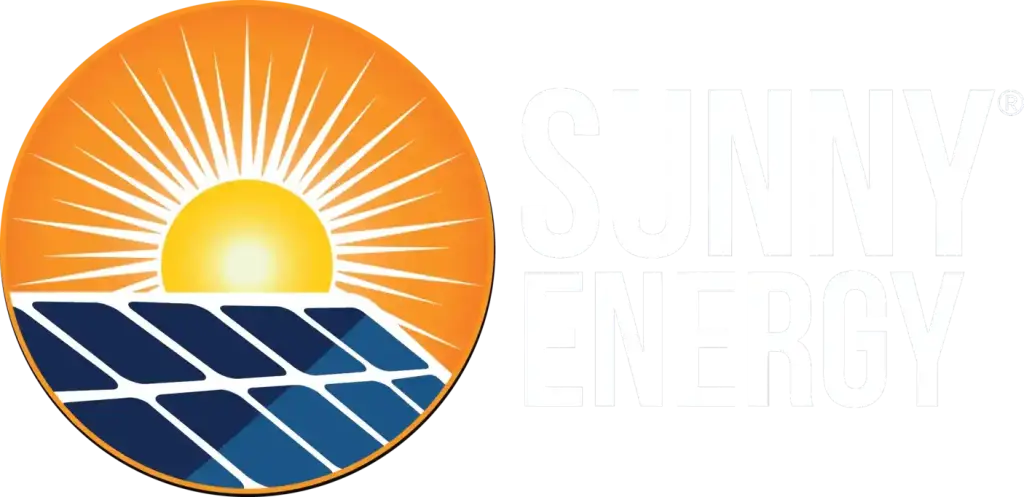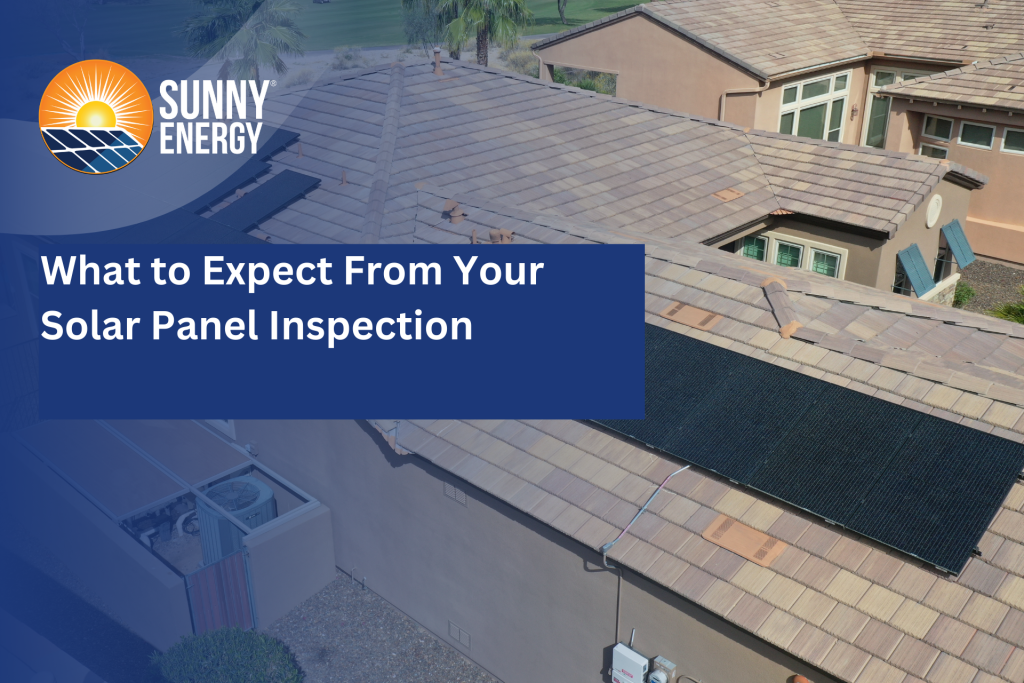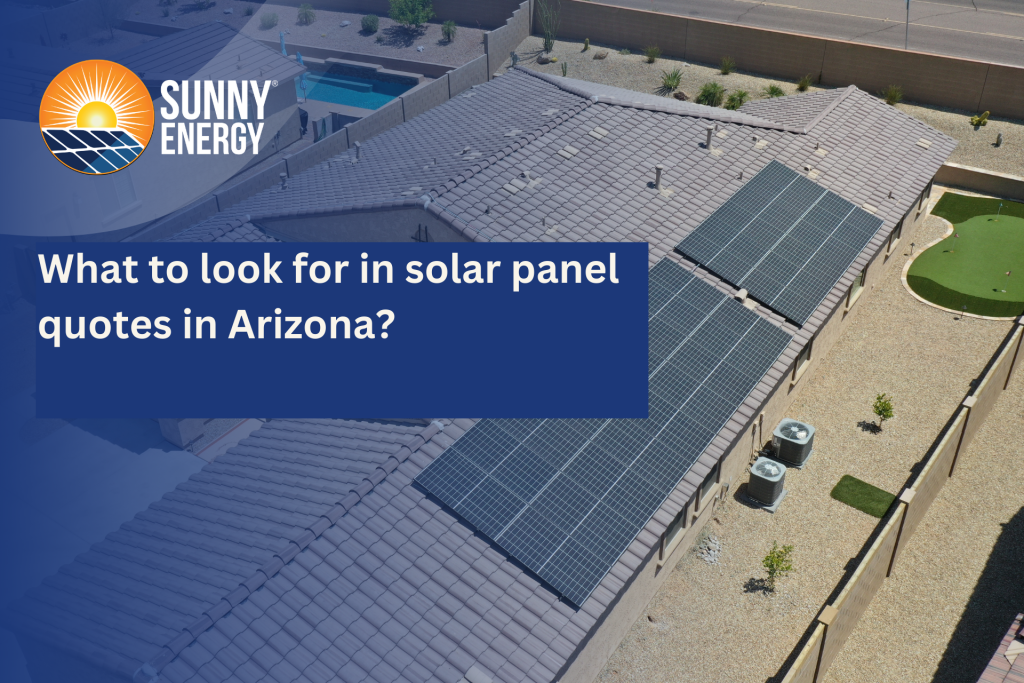Solar panels are a great investment for homeowners looking to save on electricity bills and reduce their carbon footprint. However, it’s essential to ensure that your solar panels are working efficiently to maximize their benefits. In this blog post, we’ll discuss five tips to check if your solar panels are working and answer the most asked question: how do I know if my solar panel is working and how Sunny Energy can help in monitoring and maintenance.
How do I know if my solar panel is working?
Ensuring that your solar panel system is operating efficiently is crucial to maximizing its benefits. One common question among solar panel owners is, “How do I know if my solar panel is working?” This guide will help you understand the key indicators of a properly functioning solar panel system.
1. Check the inverter:
The inverter converts the direct current (DC) produced by the solar panels into alternating current (AC) for use in your home. If the inverter’s display shows a green light or indicates that it’s producing power, your solar panels are likely working.
2. Monitor energy production:
Many solar panel systems come with monitoring software that allows you to track the energy production of your panels. You can use this software to see if your panels are generating the expected amount of electricity.
3. Inspect your electricity bill:
If you’re producing more electricity than you’re using, your electricity bill should reflect this. A significant decrease in your bill or even receiving credits indicates that your solar panels are working efficiently.
4. Visual Inspection:
While not a definitive test, visually inspecting your solar panels for any physical damage or debris that may be blocking sunlight can give you an idea of their condition.
5. Professional inspection:
If you’re still unsure, consider hiring a professional to inspect your solar panel system. They can perform tests to ensure everything is working correctly. It’s important to note that the effectiveness of your solar panels can be affected by factors such as shading, weather conditions, and the angle of your panels. Regular monitoring and maintenance can help ensure your solar panel system is working optimally.
5 tips to check if solar panels are working
Ensuring that your solar panels are operating efficiently is crucial to maximizing their benefits. Regular monitoring and maintenance can help you identify and address any issues early on, ensuring optimal performance and energy savings. Here are five tips to check if your solar panels are working effectively:
Review your electricity bills:
After installing solar panels, your electricity bills should decrease significantly, indicating that your solar panels are generating electricity and reducing your reliance on the grid. Look for a noticeable drop in your bills compared to before installing solar panels. This drop reflects the energy your solar panels are producing and can give you an idea of their effectiveness.
Know your inverter:
The inverter is a critical component of your solar panel system, converting the DC electricity produced by the panels into AC electricity for use in your home. Regularly check the inverter for any error messages or unusual behavior, as these can be signs of issues with your solar panels. Look for flashing lights, strange noises, or error codes on the inverter’s display, and consult your solar panel system’s manual or contact your installer for guidance on how to address these issues.
Look for dirt, debris, and other obstructions:
Over time, dirt, dust, leaves, and bird droppings can accumulate on your solar panels, reducing their efficiency. Regularly inspect your panels for any debris and clean them using a soft brush and mild detergent. Be cautious not to use abrasive materials or harsh chemicals that could damage the panels.
Inspect your solar meter:
Your solar meter tracks the electricity produced by your solar panels. Compare the meter readings to your expected electricity production to ensure that your panels are working correctly. Any significant discrepancies between the expected and actual production could indicate a problem with your panels or the meter itself. If you notice any issues, contact your solar company for further inspection and troubleshooting.
Check with your solar company:
If you notice any issues with your solar panels or are unsure if they are working correctly, it’s best to contact your solar company for assistance. Your solar company can perform a detailed inspection and maintenance check to ensure that your panels are working efficiently. They may also offer monitoring services that allow you to track your solar panel’s performance and detect any issues early on.
Regularly following these tips can help you ensure that your solar panels are working effectively and efficiently, maximizing your energy savings and the lifespan of your solar panel system.
Common factors that will reduce your solar power output
Several common factors can reduce the output of solar power systems. Understanding these factors can help you optimize your system’s performance. Here are some key factors:
1. Shading:
Shading from trees, buildings, or other obstructions can significantly reduce solar panel efficiency. Even partial shading can have a noticeable impact on overall output. It’s important to regularly trim trees and remove any new obstructions that may arise.
2. Panel orientation and tilt:
Solar panels should ideally face south in the northern hemisphere and north in the southern hemisphere to receive the most sunlight throughout the day. The tilt angle of the panels should also be optimized based on the latitude of your location.
3. Dirt and debris:
Dust, dirt, leaves, and bird droppings can accumulate on solar panels, reducing their ability to absorb sunlight. Regular cleaning and maintenance are essential to ensure optimal performance.
4. Temperature:
Solar panels are more efficient in cooler temperatures. High temperatures can reduce efficiency and output. Proper ventilation and spacing between panels can help mitigate this issue.
5. Inverter efficiency:
The inverter converts the DC electricity generated by the solar panels into usable AC electricity. Inverter efficiency can vary, and using a high-quality, properly sized inverter can help maximize output.
6. System design and installation:
Poor system design or installation can lead to inefficiencies and reduced output. It’s crucial to work with experienced professionals who understand the specific requirements of your location and system.
7. Age and degradation:
Over time, solar panels can degrade, leading to a decrease in output. While most panels have a long lifespan, it’s important to monitor their performance and consider replacement if necessary.
8. Weather conditions:
Cloudy days, rain, and snow can reduce solar panel output. While some reduction is expected, proper system design can help minimize the impact of these conditions.
9. Electrical losses:
Electrical losses can occur due to factors such as wiring resistance, mismatched components, and improper connections. Regular maintenance and monitoring can help identify and mitigate these losses.
How can Sunny Energy help in monitoring and maintenance of solar panels?
Sunny Energy, a leading Arizona solar company offers comprehensive monitoring and maintenance services to ensure that your solar panels are working optimally. They provide:
1. Regular Monitoring:
As the best solar company in Arizona Sunny Energy offers continuous monitoring of your solar panel system to ensure that it is generating the expected amount of electricity. This monitoring is typically done remotely using advanced monitoring tools. By monitoring your system regularly, Sunny Energy can quickly identify any issues that may arise, such as a drop in energy production or equipment malfunction.
2. Routine Maintenance Checks:
With top-rated solar companies in Arizona like Sunny Energy conduct routine maintenance checks on your solar panel system to ensure that it is operating at peak efficiency. This includes cleaning the solar panels to remove dirt, dust, and other debris that can reduce their performance. Additionally, Sunny Energy inspects the inverters and other components of your system to ensure they are functioning correctly. By regularly maintaining your system, Sunny Energy helps maximize its lifespan and energy production.
3. Prompt Repair Services:
In the event that your solar panel system requires repairs, Sunny Energy, a leading Arizona solar contractor, offers prompt repair services. Their team of experienced technicians can quickly diagnose and repair any issues with your system, minimizing downtime and ensuring that your system continues to operate efficiently.
4. Peace of Mind:
With one of the most trusted solar power companies in Arizona, Sunny Energy’s monitoring and maintenance services, you can have peace of mind knowing that your solar panel system is being monitored and maintained by professionals. This can help you avoid costly repairs and maximize the return on your investment in solar energy. Additionally, by ensuring that your system is operating at peak efficiency, Sunny Energy helps you maximize your energy savings.
Overall, Sunny Energy’s monitoring and maintenance services are designed to help you get the most out of your solar panel system. By keeping your system in top condition, Sunny Energy helps you save money on your electricity bills and reduce your carbon footprint.
Conclusion
Checking if your solar panels are working is essential to ensure that you are getting the most out of your investment. By reviewing your electricity bills, knowing your inverter, looking for dirt and debris, inspecting your solar meter, and checking with your solar company, you can ensure that your solar panels are working efficiently. Additionally, Sunny Energy’s monitoring and maintenance services can help you keep your solar panels in top condition, maximizing their lifespan and energy production.





